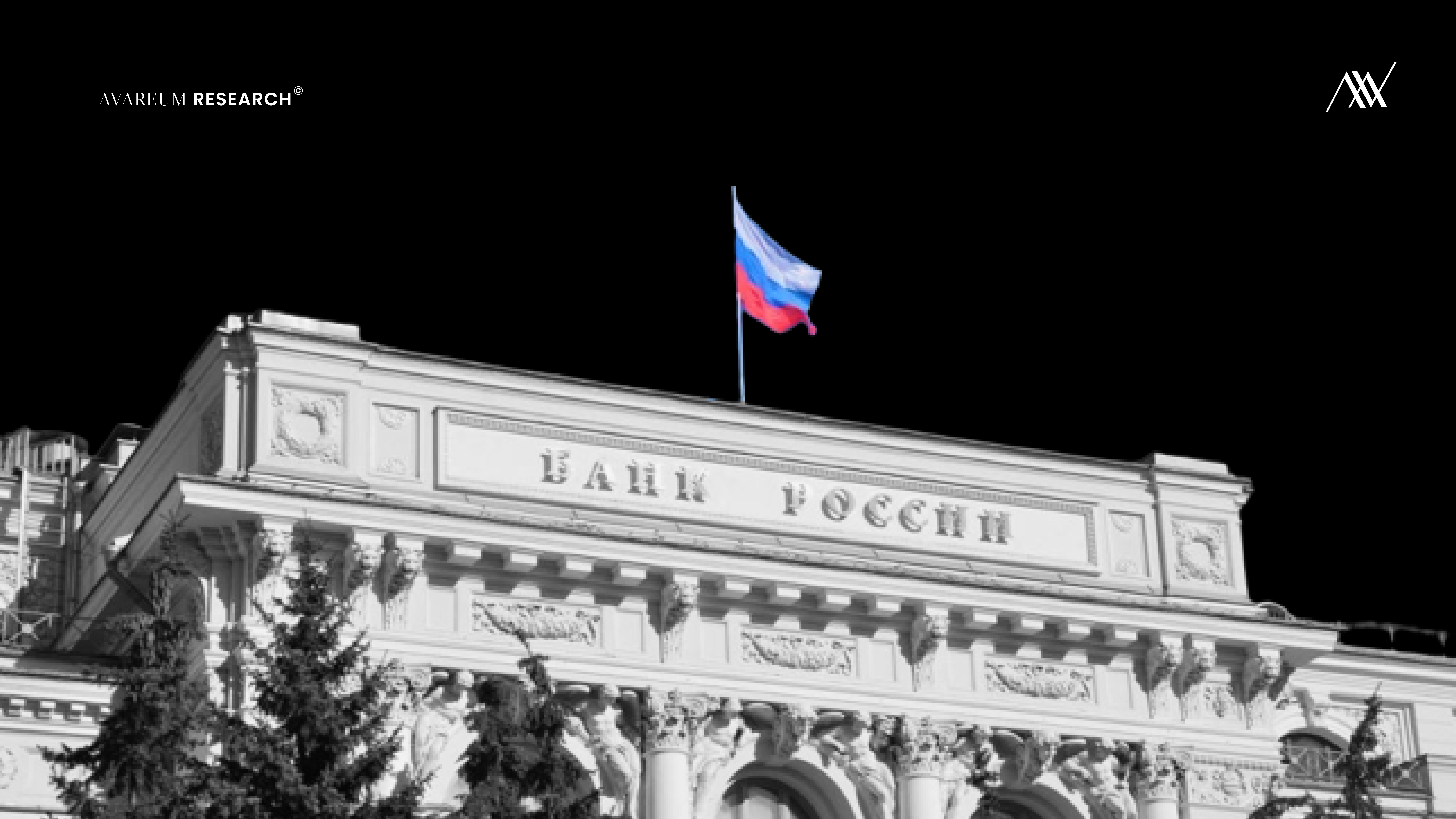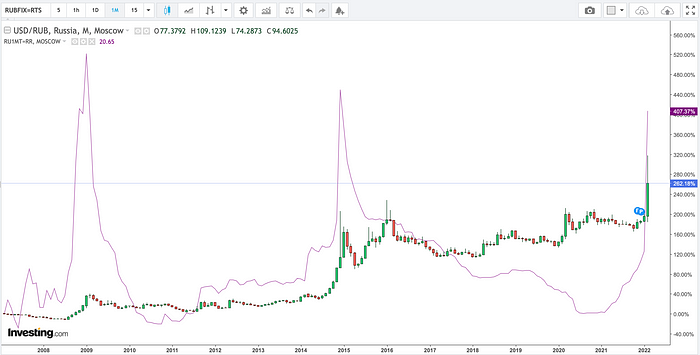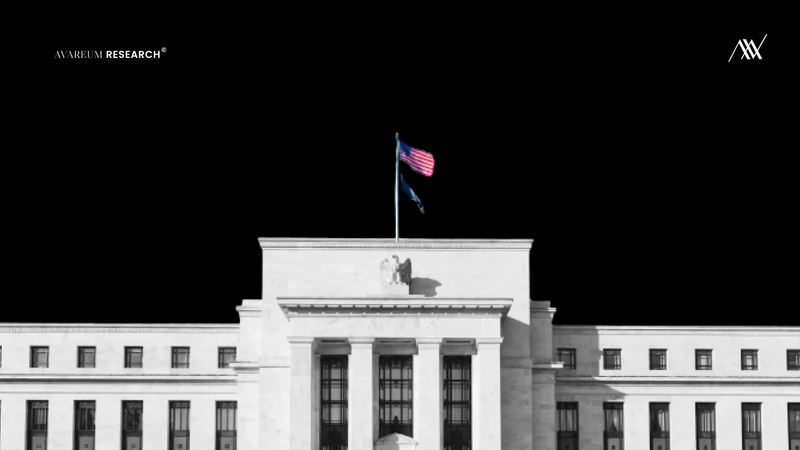A short story of Ruble

Today’s news The Russian Central Bank (CBR) raises interest rates to 20% to prolong the life of the Ruble.
When the central bank raises interest rates, it expects individuals to return to holding the currency in order to earn high interest. (Similar to what happened with the US dollar in ’80, the US dollar was dying and the FED needed to hike rates to more than 20% in order for the US dollar to survive.)
In general, when interest rates are sharply hiked, capital should flow back to the Ruble, bond yields fall, and the Ruble strengthens. (People run for high-yield bonds, which causes bond yields to drop accordingly.)
Russia had encountered similar situations in the past. Like the subprime crisis in 2009 or the oil price crisis in 2014. The latter event, which was prompted by the emergence of shale oil, resulted in a historical low in oil prices as well as a heavy devaluation of the Ruble. (Russia’s main export is oil, thus when the price of oil collapsed, so did the Ruble.)

This type of circumstance is teetering on the brink of currency catastrophe.
No matter how high you hiked the rate, if people lose faith in your currency, the end is near. The rate hike is not the way to get to the base of the problem.
Personally, I believe that 2022’s Ruble situation is nearly identical to that of 2014. Ruble devaluation drove interest rates to skyrocket in the blink of an eye in order to save Ruble.
Yet, in 2014, trust in Putin’s government was extremely immense. Rate hikes are a prudent move in situations where citizens are confident in their country.
So, what’s about this time?
Urgent action, in my opinion, is to make policy changes intended to restore public confidence as quickly as feasible. Forcing people to hold Ruble will only frighten them and worsen the crisis.
PS. You might be able to make a profit from arbitrage during a period of currency depreciation and interest rate hikes by longing the Ruble and Russian Bonds simultaneously. Because, in the end, both of them will be stabilized to equilibrium, just as is the case in 2009 and 2014.
Only one condition applies: Russia must not go into default, as it did during the Soviet Union’s collapse in ’90. 😅
เล่าเรื่องรูเบิลของรัสเซียให้ฟัง
ข่าวล่าสุดรัสเซียกระชากดอกเบี้ยเป็น 20% เพื่อยื้อชีวิตเงินรูเบิล
เวลาขึ้นดอกเบี้ยแรงๆ ธนาคารกลางก็หวังให้คนมาถือรูเบิล เพื่อให้ได้ดอกเบี้ยสูงๆ (อารมณ์คล้ายตอนที่ดอลล่าร์ใกล้พังช่วงปี ’80 ที่สุดท้าย FED ต้องกระชากดอกเบี้ยเพื่อยื้อชีวิตเงินดอลล่าร์)
ตามปกติ เมื่อขึ้นดอกเบี้ยแรงๆ แบบนี้ เงินควรไหลกลับเข้ารูเบิล สุดท้ายอัตราดอกเบี้ยพันธบัตรจะลดลง (คนแห่ซื้อพันธบัตร เพราะดอกสูง ทำให้ yield พันธบัตรลดอย่างรวดเร็ว) และรูเบิลควรจะต้องแข็งค่าขึ้นไปพร้อมๆ กัน
สิ่งนี้เคยเกิดกับรัสเซียหลายรอบแล้ว ตั้งแต่ปี 2009 วิกฤติ subprime รวมไปถึงปี 2014 ที่เกิดวิกฤติราคาน้ำมันจากการเข้ามาของ Shale Oil ทำให้เงินรูเบิลของรัสเซียอ่อนค่ารุนแรงไปพร้อมๆ กับราคาน้ำมันที่ร่วงต่ำเป็นประวัติศาสตร์ (เพราะรัสเซียส่งออกน้ำมัน พอน้ำมันถูก รูเบิลก็เลยพังตาม)

โดยปกติสถานการณ์แบบนี้เป็นสถานการณ์เฉียดเป็นเฉียดตายครับ
ไม่ว่าคุณจะขึ้นอัตราดอกเบี้ยหนักขนาดไหน ถ้าความเชื่อมั่นมันหายไปแล้ว การขึ้นดอกเบี้ยมันก็เป็นแค่การแก้ปัญหาที่ปลายเหตุ
ในมุมมองส่วนตัวผมรู้สึกว่าสถานการณ์ของรูเบิลครั้งนี้ใกล้เคียงกับที่เกิดในรัสเซียเมื่อปี 2014 ที่ผ่านมา คือค่าเงินอ่อนค่ารุนแรง อัตราดอกเบี้ยกระชากในระยะเวลาสั้นๆ เพื่อยื้อชีวิตรูเบิล
แต่ถ้าเรามาดูในรายละเอียดเราจะเห็นว่าในตอนวิกฤต 2014 นั้น ความเชื่อมั่นในรัฐบาลของปูตินยังคงอยู่อย่างเต็มเปี่ยม การกระชากอัตราดอกเบี้ยจึงเป็นการแก้ปัญหาที่ตรงจุด
แต่วิกฤตของรูเบิลรอบนี้เหมือนครั้งนั้นไหม..?
ในมุมมองผมทางแก้ปัญหาระยะสั้นคือ ต้องปรับนโยบายเรียกความเชื่อมั่นกลับมาให้ได้โดยเร็วที่สุด การบังคับประชาชนให้ถือรูเบิลกลับยิ่งสร้างความหวาดกลัว และทำให้สถานการณ์เลวร้ายลงไปอีก
PS. คุณสามารถทำกำไรจากการ arbitrage ในสถานการณ์ที่ค่าเงินอ่อนค่ารุนแรงและดอกเบี้ยกระชากสูงได้ ด้วยการ long ค่าเงินรูเบิล และ long พันธบัตรรัสเซียไปพร้อมๆ กัน
เพราะสุดท้ายแล้วทั้งสองอย่าง (ค่าเงิน และ yield พันธบัตร) จะต้องปรับตัวเข้าหากันสู่จุดดุลยภาพ (เหมือนดังที่เคยเกิดในปี 2009 และ 2014)
แต่มีเงื่อนไขเดียวนะครับว่า คุณต้องเชื่อมั่นว่าประเทศรัสเซียนั้นจะไม่ล้มละลายแบบที่เคยเกิดในยุค 90' ตอนสหภาพโซเวียตแตก 😅
Disclaimer: Avareum Research is an independent crypto research firm committed to providing unbiased and informative content. While we strive for complete objectivity, it's important to note that the research industry is inherently complex and may be influenced by various factors. To ensure transparency, we disclose any potential conflicts of interest, such as financial sponsorships or investments in the crypto space. Ultimately, all research and analysis provided by Avareum Research is intended for informational purposes only and should not be considered financial advice. Please consult with a qualified professional before making any investment decisions.
© 2024 Avareum Research. All Rights Reserved. This article is provided for informational purposes only. It is not offered or intended to be used as legal, tax, investment, financial, or other advice.






